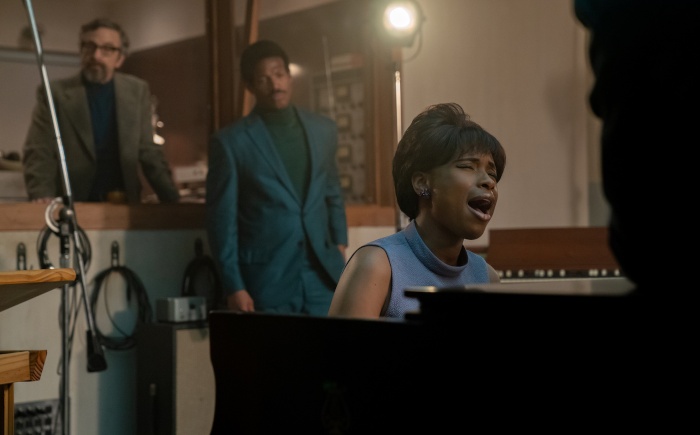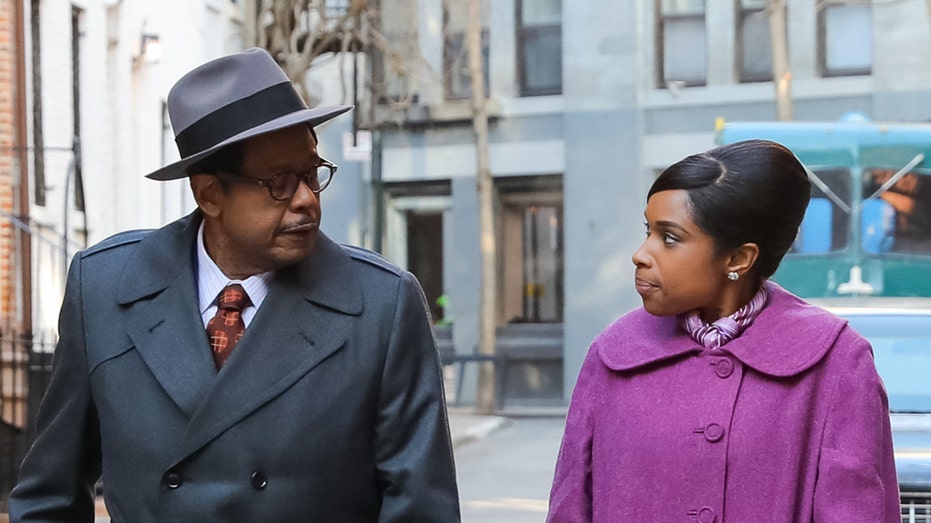Respect
12¦ DVDOne of the most challenging roles for any actor must be playing a real life person. The actor must consider the balance of putting their own stamp on the performance, as well as staying true to the person they’re bringing to life on screen.
Things are likely to get even more complex then when the person they’re playing also has one of the most rich and impressive singing voices ever recorded. No doubt Jennifer Hudson was slightly overwhelmed when she was first approached to play legendary singer Aretha Franklin, but must have felt slightly more confident when the queen of soul herself wanted her for the role, to play her for this biography.

Here we are now, entertain us, I feel stupid and contagious...
Even at the early age of ten, Pastor C.L. Franklin (Forest Whitaker) knew that his young daughter Aretha had a talent for singing. So much so that if he had guests around for the evening, he would wake her from sleep just to perform for them.
Fast forward a few years and Aretha (Jennifer Hudson) finds herself in New York, signed to Columbia records, and making albums.
Despite doing what she always wanted to be doing, the material she was given didn’t feel right. Not only was her musical direction to change, but her whole future, when she met Atlantic Records producer Jerry Wexler (Marc Maron), as he helped find the voice that was to help define soul around the world.

See, no one can tell we have the same hairstyle when I wear this fetching hat!
Making her directorial debut helming this biopic is Liesl Tommy. And her lack of experience shows as the film is a fairly traditional approach to the biopic genre. Not only is it disappointingly formulaic, it shies away from major harrowing events in the singer’s life. For instance, she was sexually abused and found herself pregnant at the age of 12. Although this is featured in the film, it doesn’t go into much detail, and the traumatic event is handled as if it were a Hallmark flick.
The same can be said for the abusive relationships that Aretha found herself in. Tommy decides not to go into detail, with the only physical brutality shown is that of being slapped by her father. On other occasions Tommy relies on Hudson wearing sunglasses as a visual shortcut to intimate that she’s been hit. Perhaps Tommy was being restricted by the film’s 12A rating, but in doing so, it certainly dilutes the abuse that Aretha suffered from these monsters.
And although Hudson may have been approved by Franklin herself, Tommy portrays her as a quiet and timid character for at least two thirds of the film, making her fairly non-descript for the majority of it.
Hudson does get to shine however when it comes to doing what Aretha did best – singing. The Oscar-winning actress has already proven on film that she can play a singer with a great voice, as she did in 2006’s Dreamgirls, and she certainly doesn’t disappoint here, as her voice soars, although she’s certainly helped by some incredible material, as she belts out classics one after the other.
Considering how harrowing parts of the singer’s life was, this treatment is all too sanitised. It just goes to show that when it comes to producing a biopic, you can be just a little bit too respectful as far as your subject matter is concerned.
